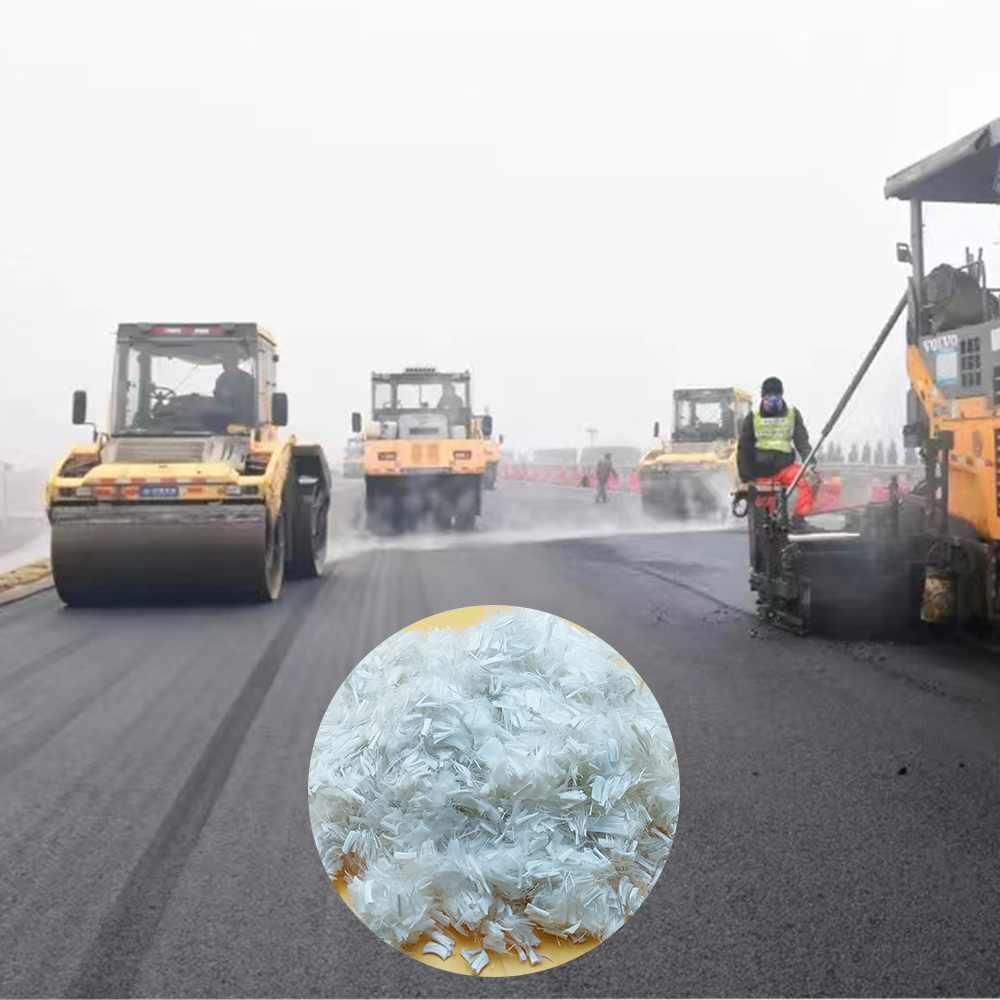Table of Contents
Benefits of Using Polymer Fiber in Road Maintenance for Asphalt Pavement
Polymer fiber is a material that has been gaining popularity in the field of road maintenance for asphalt pavement. This synthetic material is made from polymers such as polyester, polypropylene, or polyethylene, and is used to reinforce asphalt pavement, making it more durable and resistant to cracking and rutting. There are several benefits to using polymer fiber in road maintenance, which we will explore in this article.
| Serial Number | Article Name |
| 1 | Polyester Staple Fiber for highway |

One of the main advantages of using polymer fiber in road maintenance is its ability to improve the overall performance of asphalt pavement. By adding polymer fiber to the asphalt mix, the pavement becomes more flexible and resistant to fatigue cracking, which is a common issue in high-traffic areas. This increased flexibility also helps to reduce rutting, which can occur when heavy vehicles repeatedly drive over the same spot on the road.
In addition to improving the performance of asphalt pavement, polymer fiber also helps to extend the lifespan of the road. By reinforcing the asphalt mix with polymer fiber, the pavement becomes more resistant to wear and tear, resulting in fewer repairs and maintenance over time. This can Lead to significant cost savings for municipalities and transportation agencies, as they will not have to spend as much money on repairing and resurfacing roads.
Another benefit of using polymer fiber in road maintenance is its environmental impact. By using polymer fiber to reinforce asphalt pavement, less material is needed to achieve the same level of strength and durability. This means that fewer natural resources are required to maintain the road, reducing the overall carbon footprint of the project. Additionally, polymer fiber is a recyclable material, which means that it can be reused in other projects once the pavement reaches the end of its lifespan.
Furthermore, polymer fiber is easy to work with and can be added to the asphalt mix during the production process. This means that road construction crews do not have to make any significant changes to their existing processes in order to incorporate polymer fiber into their projects. In fact, many asphalt plants are already equipped to handle polymer fiber, making it a convenient and cost-effective option for road maintenance.
Overall, the benefits of using polymer fiber in road maintenance for asphalt pavement are clear. From improving the performance and lifespan of the pavement to reducing the environmental impact of road construction, polymer fiber offers a number of advantages that make it an attractive option for municipalities and transportation agencies. By incorporating polymer fiber into their road maintenance projects, these organizations can save money, reduce their carbon footprint, and create more durable and sustainable infrastructure for the communities they serve.
How Polyester Fiber Enhances Pavement Durability in Road Maintenance
Polymer fiber has become an essential component in road maintenance for asphalt pavement. Polyester fiber, in particular, has been proven to enhance the durability and longevity of pavements, making them more resistant to cracking and rutting. This article will explore the various ways in which polyester fiber improves pavement performance and contributes to overall road maintenance.
One of the key benefits of using polyester fiber in pavement is its ability to increase the tensile strength of the asphalt mix. By adding polyester fiber to the mix, the pavement becomes more resistant to cracking caused by heavy traffic loads and temperature fluctuations. This increased tensile strength helps to maintain the structural integrity of the pavement, reducing the need for frequent repairs and maintenance.
In addition to improving tensile strength, polyester fiber also enhances the fatigue resistance of the pavement. Fatigue cracking is a common issue in asphalt pavements, especially in areas with high traffic volumes. By incorporating polyester fiber into the mix, the pavement becomes more flexible and better able to withstand repeated loading cycles. This helps to prevent the formation of fatigue cracks, extending the lifespan of the pavement and reducing maintenance costs.
Another advantage of using polyester fiber in pavement is its ability to improve moisture resistance. Moisture is a major contributor to pavement deterioration, as it can weaken the bond between the asphalt binder and aggregate particles. Polyester fiber helps to create a more cohesive mix, reducing the permeability of the pavement and preventing water from seeping into the underlying layers. This enhanced moisture resistance helps to protect the pavement from damage caused by freeze-thaw cycles and water infiltration, prolonging its service life.
Furthermore, polyester fiber can also enhance the overall performance of the pavement by reducing rutting and deformation. Rutting is a common issue in asphalt pavements, particularly in areas with high temperatures and heavy traffic loads. By adding polyester fiber to the mix, the pavement becomes more resistant to permanent deformation, maintaining a smooth and even surface for longer periods. This not only improves the driving experience for motorists but also reduces the need for costly repairs and rehabilitation.
Overall, the use of polyester fiber in pavement offers a wide range of benefits for road maintenance. From increasing tensile strength and fatigue resistance to improving moisture resistance and reducing rutting, polyester fiber plays a crucial role in enhancing the durability and longevity of asphalt pavements. By incorporating polyester fiber into pavement mixes, road authorities can effectively extend the service life of their infrastructure, reduce maintenance costs, and provide a safer and more reliable transportation network for the community.
In conclusion, polyester fiber is a valuable tool in road maintenance for asphalt pavement. Its ability to enhance pavement durability, improve performance, and reduce maintenance costs makes it an essential component in modern pavement construction. By utilizing polyester fiber in pavement mixes, road authorities can ensure the long-term sustainability of their infrastructure and provide a safe and efficient transportation network for years to come.

